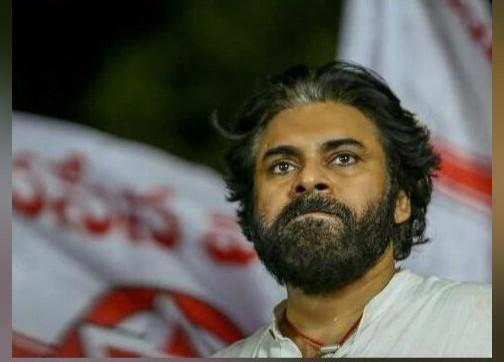
Like PM, Kalyan switches to English while speaking on J&K attack
In a significant move, Andhra Pradesh Deputy Chief Minister Pawan Kalyan switched from Telugu to English during a speech on the recent terror attack in Jammu and Kashmir’s Pahalgam. This sudden change in language has sparked a wave of curiosity among the public, with many wondering what prompted Kalyan to make this unexpected move.
For those who may not be aware, Pawan Kalyan is a well-known Telugu actor and politician who has been actively involved in Indian politics for several years. His decision to switch to English during a speech is significant not only because of his stature in the political arena but also because of the messaging it sends out to the public.
The incident occurred during a speech delivered by Kalyan at a public event, where he was addressing the recent terror attack in Pahalgam. The attack, which left several people injured and claimed the lives of many others, has sent shockwaves across the country. Kalyan, who is known for his strong views on terrorism, used the opportunity to condemn the attack and express his condolences to the families of the victims.
However, what was most notable about Kalyan’s speech was his sudden decision to switch to English towards the end of his address. “The attack has been one of the darkest days in entire country,” he said in English, sending a strong message to the nation. This unexpected move has raised many questions about the significance of his language choice and what it might imply for the country’s fight against terrorism.
Interestingly, Kalyan’s decision to switch to English is not an isolated incident. In the past, Prime Minister Narendra Modi has also been known to switch from Hindi to English while speaking on sensitive topics, including terrorism. This has led many to speculate about the significance of the language choice and what it might imply for the country’s stance on various issues.
In fact, the decision to switch to English has become a hallmark of Modi’s speeches, particularly when he wants to send out a strong message to the nation. For instance, after the Pulwama attack in February 2019, Modi switched to English during a speech to send out a stern message to Pakistan, which was widely seen as a sign of India’s resolve to take action against terrorism.
Similarly, Kalyan’s decision to switch to English during his speech on the Pahalgam attack could be seen as a sign of India’s united stance against terrorism. By using English, Kalyan may have been trying to convey a message of solidarity with the nation and its people, rather than being confined to a specific language or region.
Moreover, the decision to switch to English has also been seen as a way to transcend linguistic and regional barriers. In a country as diverse as India, where there are many languages and regions, the use of English can be seen as a way to connect with people across the country and beyond.
In conclusion, Pawan Kalyan’s decision to switch to English during his speech on the J&K attack is a significant development that has sent a strong message to the nation. Like PM Modi, Kalyan’s decision to switch to English could be seen as a sign of India’s united stance against terrorism and a way to transcend linguistic and regional barriers. As the country continues to grapple with the challenges of terrorism and extremism, Kalyan’s decision to switch to English is a reminder of the importance of language and communication in shaping public opinion and policy.
Source: https://youtu.be/hl6_hZOnkFA






